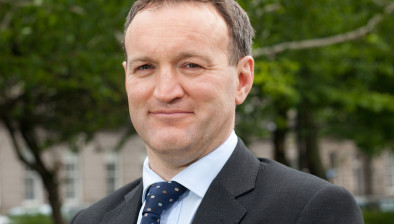Lindsays: Clock ticking for Scottish business owners facing potential CGT rise

Alastair Smith
Amid speculation of an impending capital gains tax (CGT) hike in the upcoming Autumn Budget, Scottish business owners have accelerated sales and merger negotiations to finalise deals before any potential changes take effect, according to Lindsays.
Chancellor Rachel Reeves has so far refused to rule out an increase in capital gains tax when she delivers her autumn Budget – the first of Sir Keir Starmer’s new UK Labour government – on 30 October.
CGT is charged on profits made from the sale of an asset that has increased in value over the time it is held.
Corporate lawyers at Scottish legal firm Lindsays say the prospect of a change to CGT has prompted some SMEs and entrepreneurs already in advanced sale or merger negotiations to step up work to try and complete deals to beat any rise or reduction in reliefs that are imposed with immediate effect as part of the Budget.
And they are warning that time is running short for anyone who would like to get a sale over the line before Ms Reeves sets out tax and spending plans at Westminster.
Alastair Smith, a director in Lindsays’ corporate team, said: “Selling a business can be a long and complex process.
“For people who are already some way down the road towards doing this - and in advanced negotiation - the discussion around what may be in the upcoming Budget does seem to have focussed their mind on when they would like to see a deal completed. Many would like to see this done by October 30.
“The level of diligence and detail that’s required in many transactions means accelerating the process is not right for everyone. But, for those at the appropriate point, there may be a short window of opportunity to complete in time.
“We do not, of course, know what the Chancellor might announce. Suggestions about changes to tax or reliefs is simply speculation. But the businesses with whom we work are watching keenly to see what steps the Government does - or does not - take and what that might signal for the future.”
Economists say there are a number of steps the government could take in regard to CGT, including raising headline rates or removing certain reliefs.
CGT is payable by individuals, but also self-employed sole traders, partners in business partnerships and company owners, among others, but the rate paid depends on the income of an individual and the type of asset being sold.
For higher earners, capital gains tax is currently 24% on gains from residential property or 20% on gains from other assets.
Business asset disposal relief is a relief that reduces the CGT payable by a private business owner to (in certain circumstances) 10% CGT on the first £1 million of lifetime gain.
That means that, for a business owner likely to realise a gain on a sale, completing a transaction in October rather than November may have substantial benefit if changes came into play.
When interviewed on a visit to New York this summer, the Chancellor said: “Of course you need to bring in the revenue to fund vital public services, but we’ve also got to grow the economy. I won’t do anything that makes it harder to achieve that economic growth and prosperity.”
According to the Office for National Statistics (ONS), the level of dealmaking across the UK dropped to the lowest level in four years in June, with 93 mergers and acquisitions. The data tracks the number of M&A transactions worth at least £1m involving UK businesses.
June was the lowest number since the 58 struck in May 2020 at the peak of the coronavirus pandemic.








